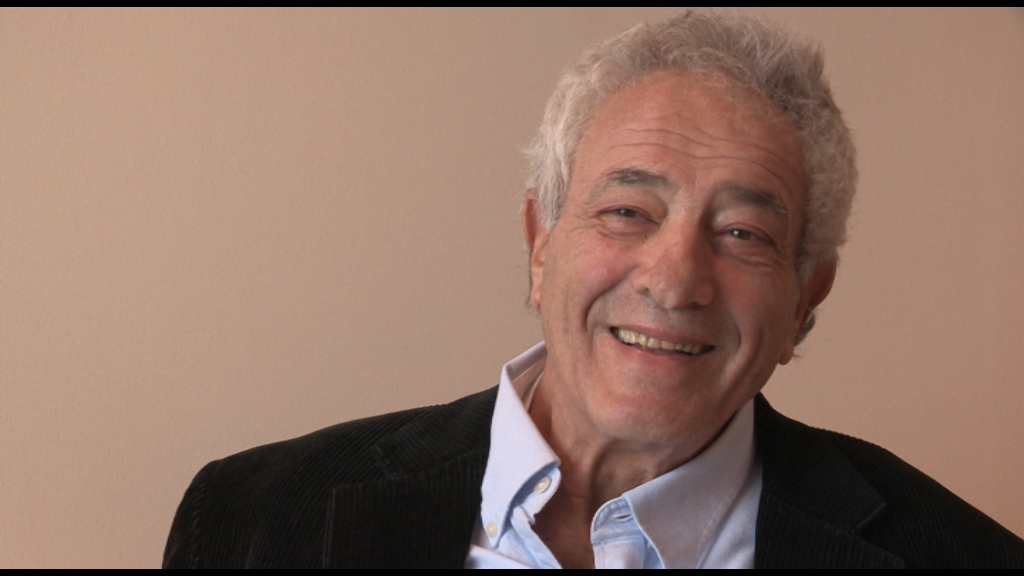NEXT STORY

The reality of living under a fatwa
RELATED STORIES

NEXT STORY

The reality of living under a fatwa
RELATED STORIES


|
Views | Duration | |
|---|---|---|---|
| 91. Issuing of the fatwa against The Satanic Verses | 15 | 03:32 | |
| 92. How misinformation fuelled resentment against The Satanic... | 17 | 03:50 | |
| 93. Consternation at Penguin Books | 15 | 04:23 | |
| 94. Fear of reprisals | 13 | 02:05 | |
| 95. Our freedoms at stake | 13 | 05:00 | |
| 96. The reality of living under a fatwa | 20 | 03:31 | |
| 97. Persecuted and victimised for defending our freedoms | 15 | 06:44 | |
| 98. Postponing publication of The Satanic Verses in... | 14 | 06:13 | |
| 99. In defence of a free society | 30 | 02:47 |

I wrote a piece for the Index on Censorship. I had been asked by The Times, for a very fancy sum of money, to write an account what was going on, or what had gone on. Don't remember exactly when it happened, and I didn't want the money. But I did, accept, years later, an invitation on, I think it was the 20th anniversary of the fatwa, to write a piece for the Index on Censorship; the only piece I've ever written about what we lived through. Because I thought our freedoms were the central issue.
It's easy for the public to focus on an individual, on Salman, who was certainly innocent of any wrongdoing in respect of our Western attitudes and mores. And for all I know, innocent even in other, in the context of other countries. But I'd rather just talk about our own country. He was absolutely innocent. But, increasingly, people sort of took sides on this, because the issue didn't go away.
I also have a view - it's not a popular one, but maybe it's the correct one - that all the committees and speeches by friends and authors and intellectuals and so on didn't help Salman at all. May have made him feel good that he was supported intellectually, but these people were totally unknown to the mobs in the streets. And the British government I don't think cared about these - or the American government either - about these feel-good demonstrations. Actually, the people who were defending Salman were his publishers, Penguin, who would not withdraw the book. There was a sort of self-congratulatory aspect of the support for Salman Rushdie and so on; I don't think it, frankly, did anything to lessen the terror.
And terrorism works. There were images, there were rumours - maybe there was something real to them, I don't know - of death squads that had been sent from Tehran to those capitals in the world where the book was being published. Maybe that was true; maybe that was not true. Nobody would have thought it was impossible for there to be death squads.
Many people died. There were communal riots in India, although the book was not published there. And I think 60 or 70 people died. Died means dead. Died in India over this book. Two Belgian clerics, moderates, died in, I think, Brussels, because they took the view publicly that the book should, or could, be banned in Islamic countries but should not be banned in countries where this book was legal, in Western countries in other words. They were offed right away. A Norwegian publisher was shot in the back and lay in hospital for, I don't know how long - five or eight months, till he was better. And I don't know if he ever became best again.
Peter Mayer (1936-2018) was an American independent publisher who was president of The Overlook Press/Peter Mayer Publishers, Inc, a New York-based publishing company he founded with his father in 1971. At the time of Overlook's founding, Mayer was head of Avon Books, a large New York-based paperback publisher. There, he successfully launched the trade paperback as a viable alternative to mass market and hardcover formats. From 1978 to 1996 he was CEO of Penguin Books, where he introduced a flexible style in editorial, marketing, and production. More recently, Mayer had financially revived both Ardis, a publisher of Russian literature in English, and Duckworth, an independent publishing house in the UK.
Title: Our freedoms at stake
Listeners: Christopher Sykes
Christopher Sykes is an independent documentary producer who has made a number of films about science and scientists for BBC TV, Channel Four, and PBS.
Tags: Index on Censorship, Salman Rushdie
Duration: 5 minutes
Date story recorded: September 2014-January 2015
Date story went live: 12 November 2015